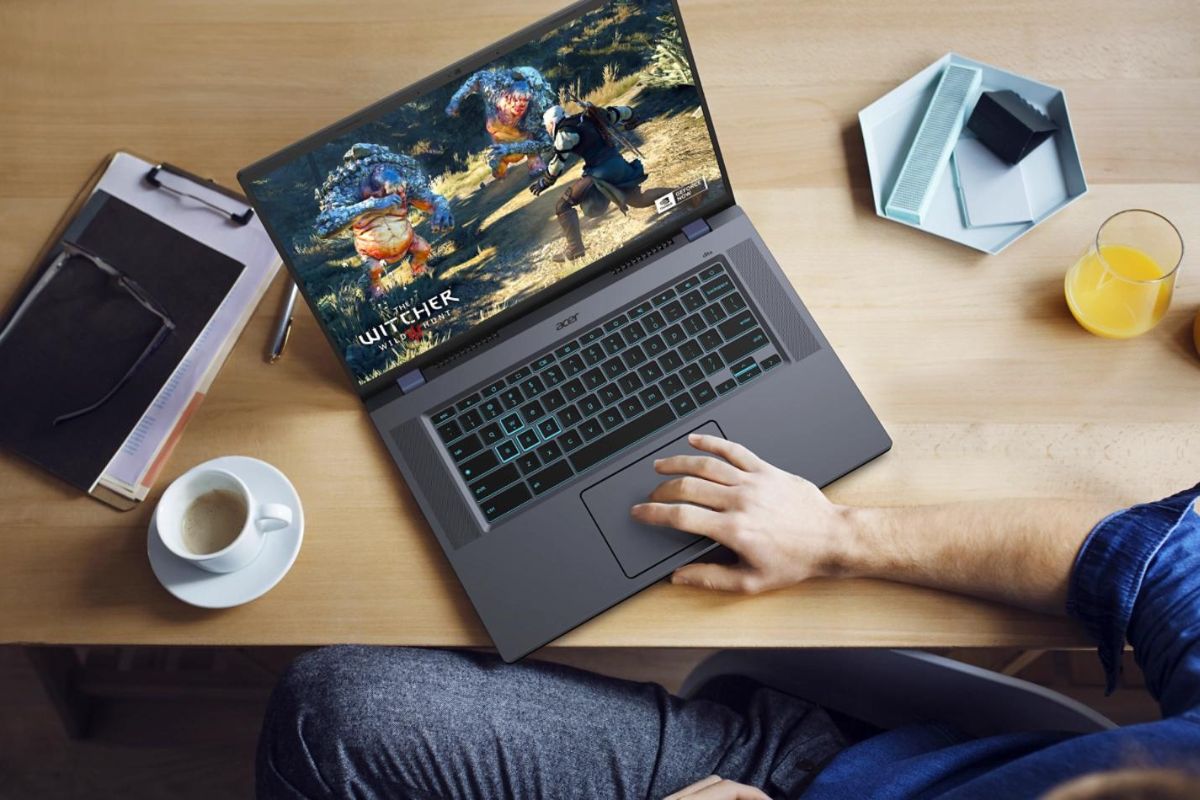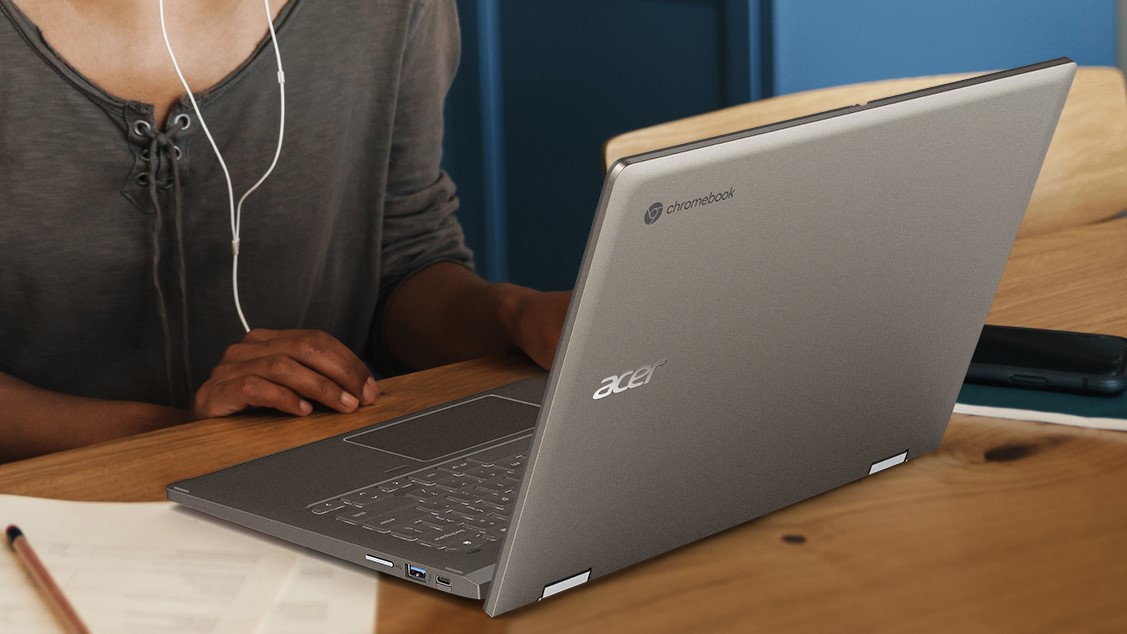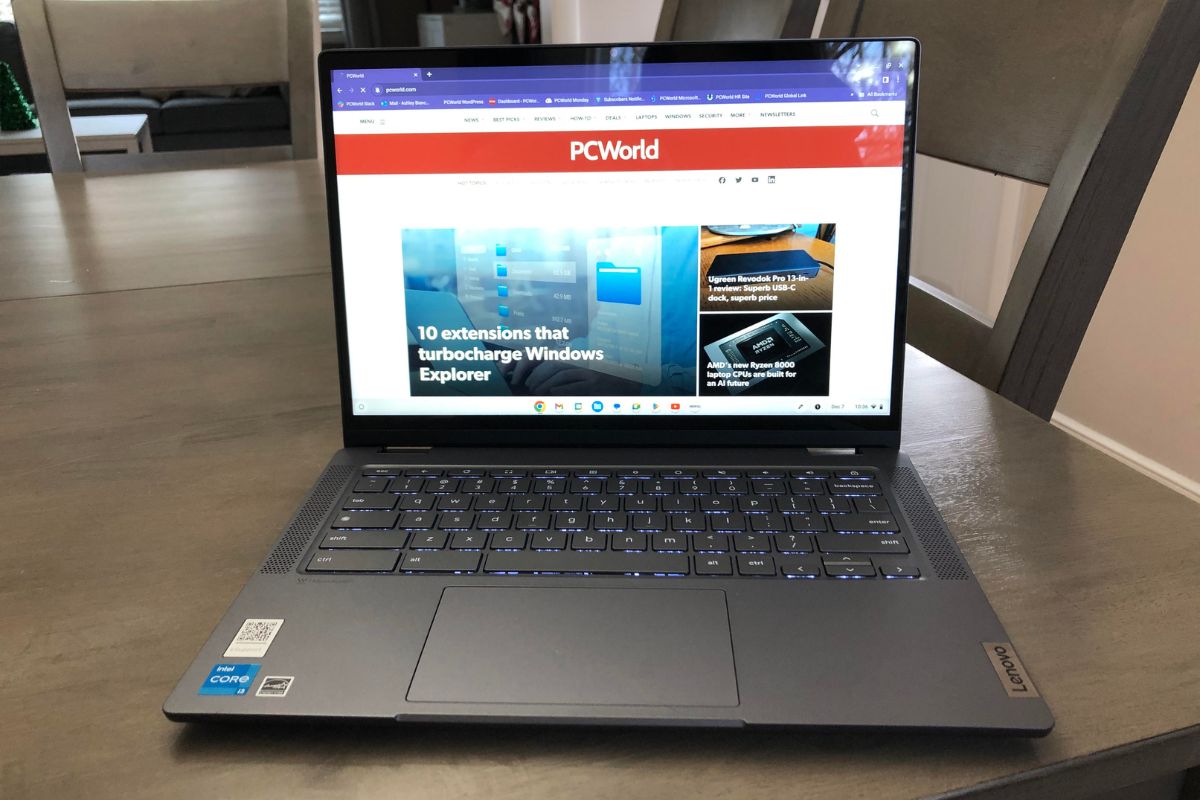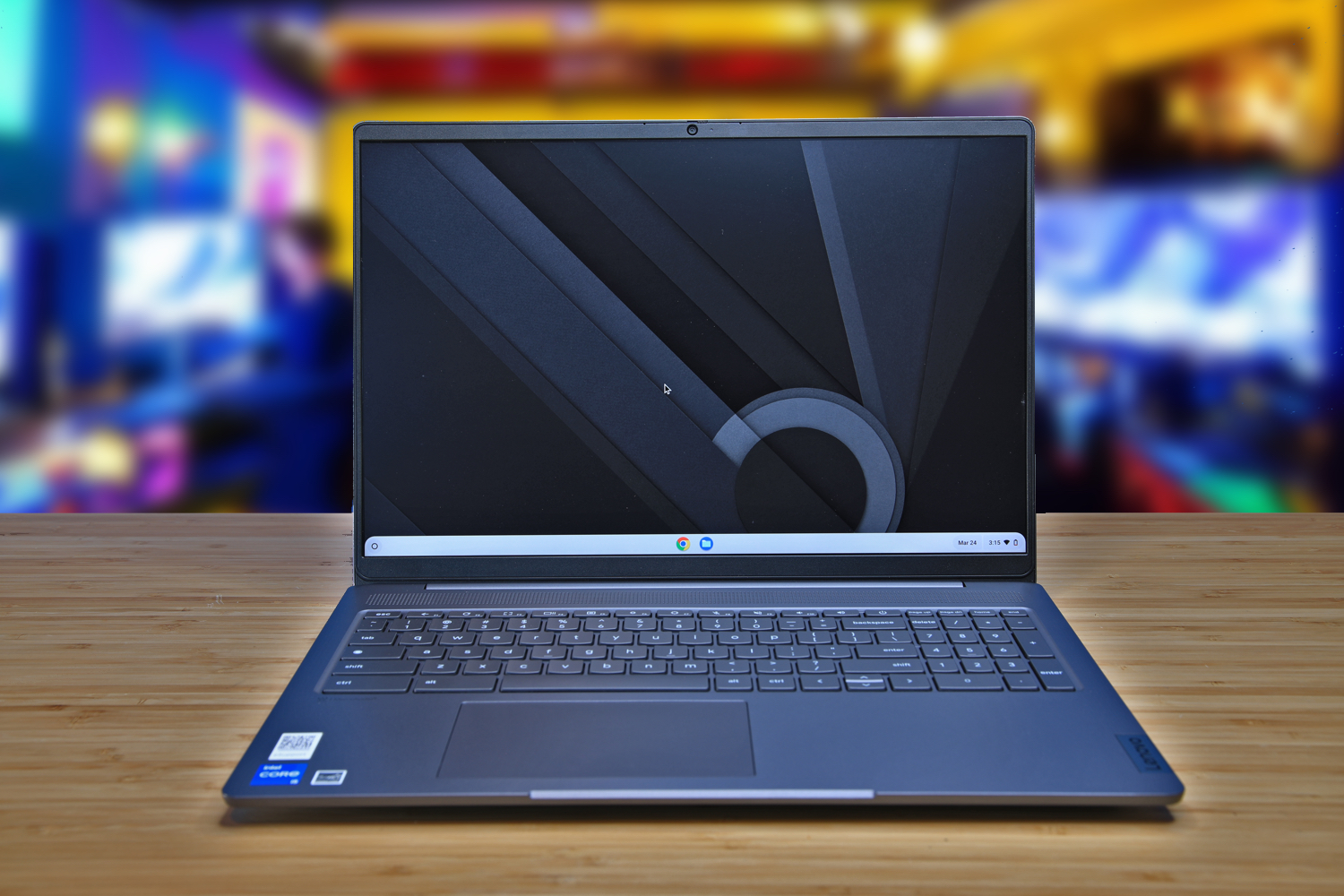Chromebooks have been around since 2011, but they’ve undergone a serious transformation since the early days. They’re no longer the low-resolution, low-powered machines from the days of old. Now, in addition to the ones that fit the needs of casual users, a handful of them are capable of running games, a far-fetched idea at one point in time.
Sure, you can probably do more on a Windows machine, but if you’re looking for something affordable and zippy enough for everyday tasks, a Chromebook might just be your best option — and a lot of the compromises these web-based laptops required in their earliest day no longer apply. Let’s dig in.
Looking for more options? You’ll definitely want to check out PCWorld’s best Chromebooks and best laptops roundups.
Chromebooks are more affordable
With a couple of exceptions, Chromebooks are generally more affordable than their Windows counterparts. You’ll find most premium models in the $600-$800 range. However, we’ve seen Chromebooks go on sale for under $200, albeit with some significant compromises. Most cost well under $500.
You can point to two reasons right away. First, most buyers prefer a Core or Ryzen chip inside a traditional laptop, just to accommodate the additional performance Windows and its applications require (to run on the laptop, remember). Those chips cost money, more than the Intel Celeron or Arm chips commonly found in Chromebooks. Microsoft also charges for its Windows license, presumably (much) more than the Chrome OS that powers a Chromebook.
Since Chromebooks are purpose-built for surfing the Internet, they need less memory and storage than traditional laptops as well.
Chromebooks are designed for everyday users
Chromebooks are designed with day-to-day tasks in mind. So, if you use your laptop for just browsing the web and watching Netflix, then you should consider picking one up. As someone who regularly uses a Chromebook for work and leisure, I find that performance is zippy enough for the kind of things I do. The Chromebook Plus models, released late 2023, promise better performance and displays as well as new apps and AI capabilities for around $400. In a nutshell, you’re getting better hardware and software, which sets a higher standard for Chromebooks from the get-go.
Having tested most of the Chromebook Plus models for the last couple of months, I can confidently say that performance is pretty fast across all of the machines. I had up to 20 tabs open at once and I didn’t notice any lag. The bootup times are lightning fast, too. In fact, the Lenovo Flex 5i Chromebook Plus, earned the top spot in our best Chromebooks roundup. It’s a 2-in-1 Chromebook that offers a vibrant touchscreen display and a wonderful typing experience. The aluminum finished exterior also makes it feel more expensive than it actually is.
Chromebooks are purpose-built for the web
Chromebooks began life as little more than a web browser, in a world where the web was new and worth exploring. That still holds true today: Chromebooks often use the internet to access the same web services that live on your phone as dedicated apps.
That’s perfectly fine. Web developers develop for both scenarios. On a laptop, yes, Microsoft Office / Microsoft 365 opens as a dedicated app, but the apps still encourage you to save to the cloud. However, you can still buy Microsoft 365 and work on a Chromebook instead. The difference is that you’ll be working in a browser instead, which is typically a cleaner interface. And because you’re working on the web, some of the latest features will arrive to you first, because they’re easier to deploy online.
True, not every Microsoft 365 app works on a Chromebook. But these are typically the niche apps you can probably ignore: Visio, Project, and Publisher, among others. Microsoft Word, Excel, PowerPoint, and Outlook all work on the web, and thus on Chromebooks.
You can game on Chromebooks now
The first cloud gaming Chromebooks made quite the splash back in 2022. You can play the latest games by streaming them from the cloud. Just make sure you have a stable internet connection. The Acer Chromebook CBG516, for example, even has an RGB backlit keyboard with the WASD keys highlighted. When we reviewed the Lenovo IdeaPad 5 Gaming Chromebook, we were impressed with the spacious 1600p display and the wireless and wired connectivity. As for the gaming performance, our reviewer says it’s an “excellent experience.” The IdeaPad 5 can stream a cloud gaming service at 1600p with a 120Hz refresh rate. We were able to run Cyberpunk 2077 and manage a solid 136 frames-per-second.
Chromebooks run apps just fine
Chromebooks come with a hidden talent: Virtually all modern Chromebooks support Android apps. Many Android apps are designed for phones and tablets, particularly games, which might look a little odd when formatted to a Chromebook screen. But any productivity apps will undoubtedly be designed to also be used on a Chromebook. Some Chromebooks can fold back into a tablet-like mode, too—giving you the best of both worlds.
For years, Windows users have become accustomed to pointing out that a laptop can run just about anything. And that’s true, though the need to run dozens of small helper utilities has, at least anecdotally, diminished. But now that web-based tools and apps are common, web-based Chromebooks can do virtually all normal everyday tasks, with Android compatibility a useful extra you have in your back pocket if it’s needed.
Chromebooks are pretty darn rugged
Originally, Chromebooks were designed for the educational market. That means mostly kids were using them. Whether you work with kids or have little ones of your own, you’re probably well aware that they can be messy as heck. That’s why Chromebooks were often built with durable frames and spill-resistant keyboards. That’s still the case these days. In fact, whenever I put a Chromebook to the test, the build quality is the first thing I observe and I’m often pleased with what I find.

Acer
You can easily restore a Chromebook
If you have a problem with the Chromebook, it can be restored to the factory settings within minutes. I’ve powerwashed a number of Chromebooks and I can do it with my eyes closed at this point. All you have to do is open the settings app up, scroll all the way down, click on the advanced tab, and select the reset button next to the powerwash option. You don’t worry about losing your data or bookmarks, as everything gets stored in the cloud. Nothing beats a clean slate, that’s for sure.
Chromebooks expand now, too
Chromebooks have a reputation for being a single-screen device, since they’ve been used in the classroom on a child’s desk. Most ship with either a dedicated HDMI port for an external display connection, or a USB-C port, or both. The latter is certainly sufficient for a single 1080p display, and possibly a 4K display, too. An external display might not be a necessity, but it’s a luxury you’d probably like to have as an option, and a Chromebook can offer that.
While most Chromebooks don’t yet support Thunderbolt, you can use a USB-C dongle if a Chromebook has a USB-C port. At between $20 to $40, a USB-C hub or dongle is far cheaper than a Thunderbolt dock anyway, and perfectly suited to adding support for external hard drives and storage cards.

Acer
Chromebooks can print
Historically, Chromebooks have had a reputation for being incompatible with printers. And while that’s sometimes true, the blame is more with the printer. Many printers ship with all sorts of unwanted utilities to reorder ink and manage print formatting. Chromebooks try and do away with all that, and just print the page. If your printer allows that (Google’s list of compatible printers is extensive), you’ll have no trouble printing with a Chromebook.





